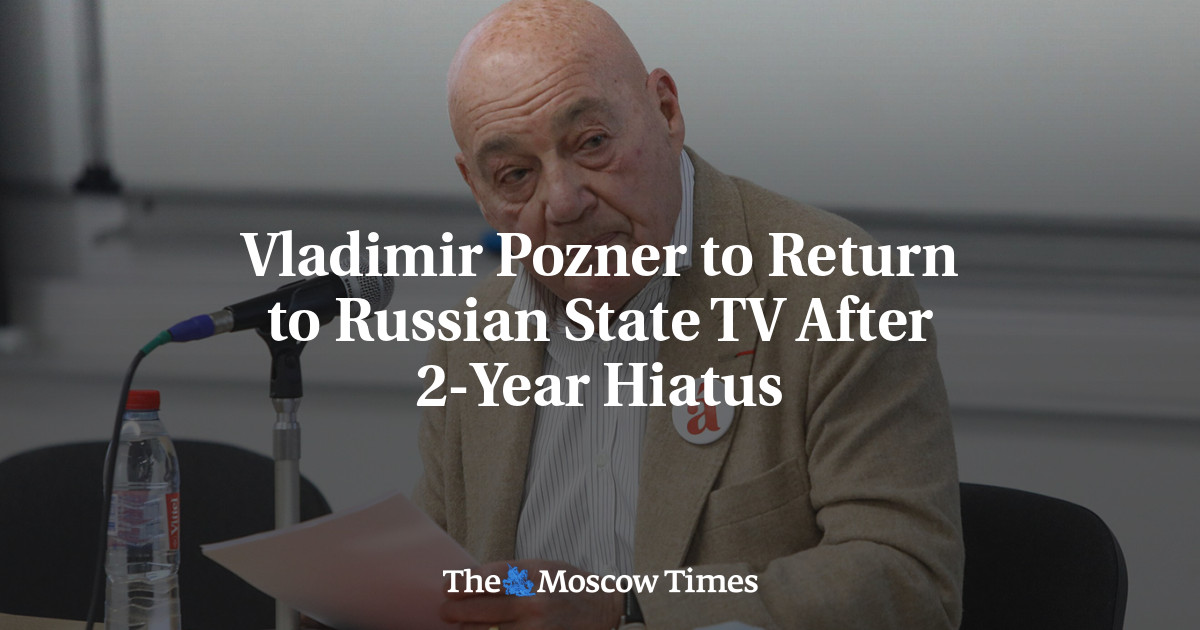
Veteran Soviet-Russian journalist Vladimir Pozner is set to return to state television more than two years after his long-running program was taken off the air following Russia’s full-scale invasion of Ukraine, Russian media reported Wednesday.
Pozner, 90, had hosted his weekly interview show “Pozner” on Channel One since 2008, but it was canceled shortly after the February 2022 invasion. He later claimed Channel One pulled the program in order to make room for war coverage.
Although Pozner has not publicly taken a stance on Russia’s invasion, he has suggested that Western refusal to block Ukraine’s NATO ambitions played a role in the conflict’s escalation.
Channel One head Konstantin Ernst announced Monday that the network’s fall season lineup would include Pozner’s new show, “Turkish Notebook,” as reported by the RBC business news outlet.
Pozner said in an interview with Forbes Russia last week that his production team completed an eight-episode documentary series on Turkey, which they submitted for Ernst’s approval.
Unlike his former interview program, which had featured guests from former U.S. Secretary of State Hillary Clinton to current Russian Security Council Head Dmitry Medvedev, Pozner’s new project appears to steer clear of political issues, similar to his live events across Europe this year, co-hosted by former late-night talk show host Ivan Urgant.
In the Forbes interview, Pozner said he had received offers to work abroad if he denounced President Vladimir Putin and spoke out on Russian politics. He declined, stating that such actions “are not journalism, but something else entirely.”
Later on Wednesday, Pozner told the MSK1.ru news outlet that reports of his return to state television were not entirely accurate.
“This is the kind of work that will be shown on Channel One — if shown. But that doesn’t mean I’m back on Channel One, because I didn’t return,” he was quoted as saying. “So that there is no misunderstanding, this isn’t going to be a regular program.”
Pozner gained international recognition during the Cold War for his TV appearances, where he often explained Soviet policies and viewpoints to Western audiences. During Perestroika, he hosted televised discussions between audiences in the Soviet Union and the U.S. together with American journalist Phil Donahue, who passed away last month.





